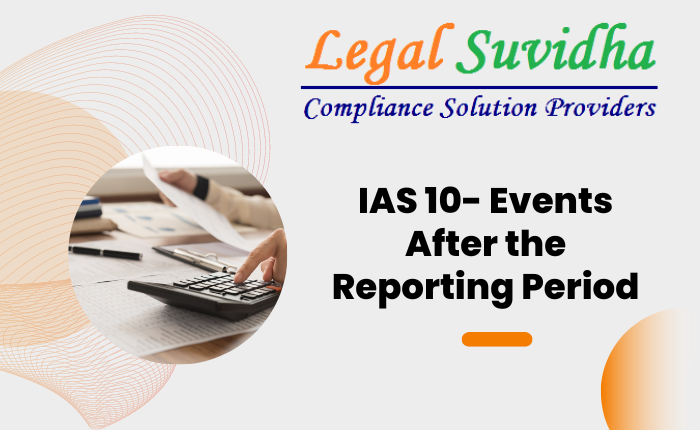Event After the Reporting Period:
These events, whether they bring positive or negative outcomes, take place between the end of the reporting period and the date when the financial statements receive approval for distribution [IAS 10.3].
Adjusting Events:
- These are events occurring after the reporting period that provide additional evidence about conditions that existed at the close of the reporting period.
- Such events encompass instances where the assumption of the enterprise’s ongoing operation, for the whole entity or a part thereof, is found to be inappropriate [IAS 10.3].
- Financial statements must be adjusted to account for these events, as they enhance the accuracy of reflecting the actual state of affairs [IAS 10.8].
Non-Adjusting Events:
- Non-adjusting events are those events that suggest conditions arising after the reporting period’s conclusion.
- These events do not necessitate adjustments to the financial statements since they relate to developments occurring after the reporting period’s close [IAS 10.3].
- An example of a non-adjusting event is the declaration of dividends after the reporting period, which doesn’t impact the liabilities recognized at the reporting period’s end [IAS 10.12].
Accounting Considerations:
- Adjustments for adjusting events involve modifying financial statements based on events occurring after the balance sheet date that offer supplementary support for conditions existing at the reporting period’s end [IAS 10.8].
- On the other hand, non-adjusting events do not require such modifications as they concern conditions arising after the reporting period [IAS 10.10].
- Situations where going concern assumptions become inappropriate after the reporting period require careful consideration when preparing financial statements [IAS 10.14].
Going Concern Issues:
The principle of preparing financial statements on a going concern basis may be disregarded if post the reporting period’s conclusion, management decides on liquidation, cessation of trading, or when there’s no viable alternative but to do so [IAS 10.14].
Disclosure Requirements:
- Non-adjusting events of significant importance should be disclosed to ensure that users can make informed evaluations and decisions.
- The disclosure should include details about the event’s nature and an estimate of its financial impact or an indication that a reasonable estimate cannot be provided [IAS 10.21].
- Disclosures related to conditions existing at the reporting period’s conclusion should be updated to reflect any new information received after the reporting period [IAS 10.19].
- Companies must reveal the authorization date of the financial statements and the entity or individual responsible for granting authorization.
- If parties beyond the issuing entity have the power to make amendments post-issuance, this fact should be disclosed [IAS 10.17].
If You have any queries then connect with us at [email protected] or [email protected] & contact us & stay updated with our latest blogs & articles
Post Views: 300


![Founder Shareholding: 5 Critical Mistakes That Kill Fundraises [2026 Guide] 1 Founder Shareholding](https://legalsuvidha.com/wp-content/uploads/2026/01/unnamed-file-2.png)
![Received an Income Tax Notice in India? Don’t Panic — Here’s Exactly What to Do [2025 Guide] 2 Income Tax Notice](https://legalsuvidha.com/wp-content/uploads/2025/12/Income-Tax-Notice.png)
![Cyber Crime FIR in India: How to File Complaint for Online Fraud, Banking Fraud & Digital Harassment [2025 Guide] 3 Cyber Crime Complaint](https://legalsuvidha.com/wp-content/uploads/2025/12/Cyber-Crime-Complaint.png)
![Trademark Infringement in India: How to File Legal Action & Protect Your Brand [2025 Guide] 4 Tradenark Infrigement](https://legalsuvidha.com/wp-content/uploads/2025/12/Tradenark-Infrigement.png)



